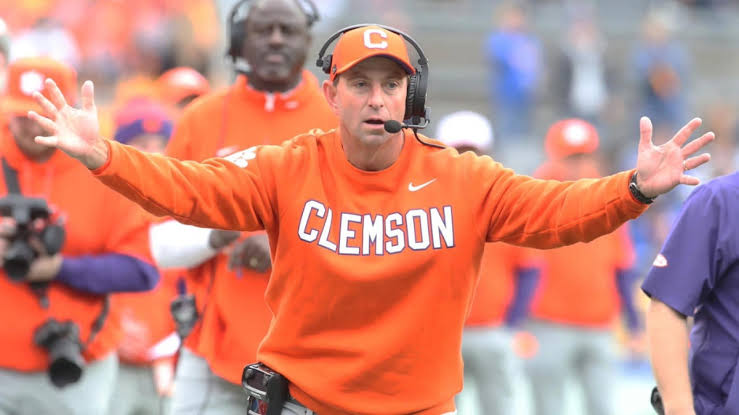“CFP run proves Dabo, Clemson aren’t going anywhere,” underscores the Clemson Tigers’ resilience and enduring strength under head coach Dabo Swinney. Despite facing skepticism and challenges this season, Clemson’s performance in the College Football Playoff (CFP) has served as a powerful reminder that the program remains one of college football’s elite forces.
Over the past decade, Clemson has established itself as a powerhouse, securing multiple national championships and consistently competing at the highest level. However, recent seasons have raised questions about whether the Tigers could maintain their dominance amid increased competition from other programs and occasional inconsistencies in their performance. Critics pointed to offensive struggles, quarterback challenges, and a perceived decline in recruiting prowess as signs of a program on the decline.
Yet, Clemson’s CFP run this season has effectively silenced many of those doubts. Under Swinney’s leadership, the team displayed grit, adaptability, and the ability to rise to the occasion when it mattered most. Key players stepped up in critical moments, the defense delivered standout performances, and the coaching staff made strategic adjustments that showcased their experience and expertise.
Dabo Swinney, a two-time national championship-winning coach, has repeatedly emphasized his belief in the culture and foundation of Clemson football. His leadership has been instrumental in maintaining the team’s identity and focus, even during challenging times. This season’s success reinforces Swinney’s philosophy and highlights the strength of the program’s infrastructure, from player development to recruiting and coaching.
Beyond the immediate impact of this season, Clemson’s CFP performance sends a clear message to both fans and critics: the Tigers are not fading into irrelevance. Instead, they remain firmly entrenched as a top-tier college football program capable of competing with—and defeating—any team in the nation.
As Clemson looks ahead, this playoff run could serve as a turning point, reenergizing the program and attracting future recruits who want
to be part

